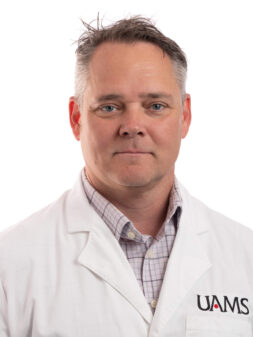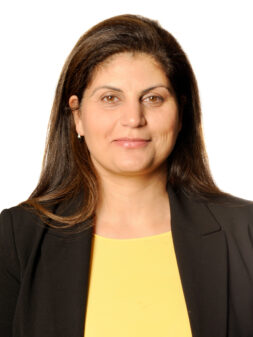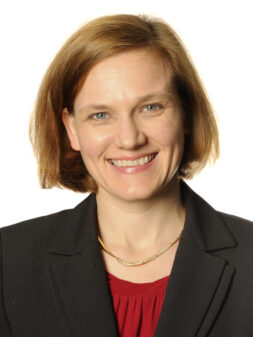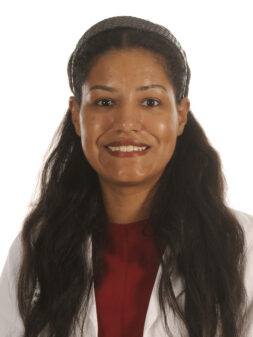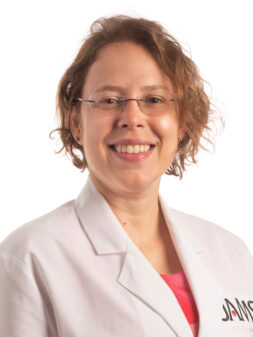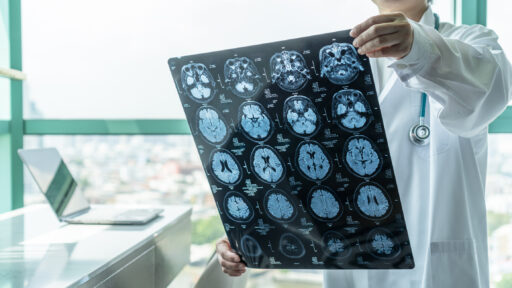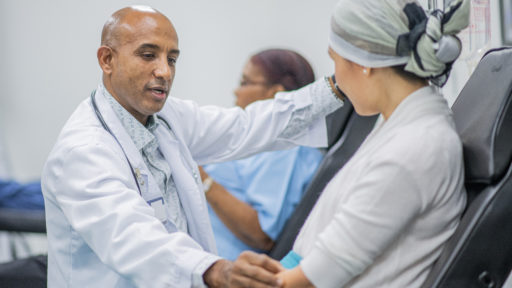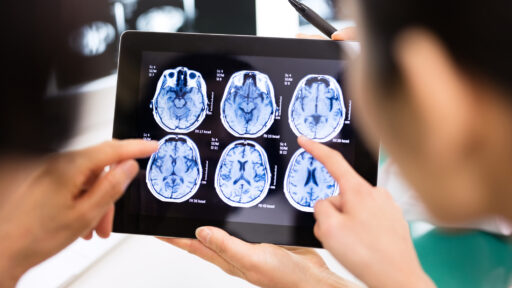A brain tumor forms when abnormal cells cluster or grow into a mass in your brain.
There are many types of brain tumors. Some are cancerous (malignant) while others are non-cancerous (benign).
Some tumors begin in your brain (primary brain tumors), or some types of cancer can spread from other parts of your body (metastatic) and form secondary tumors.
Not all tumors grow at the same rate. The location in your brain and the rate of growth are key factors in how the tumor may affect you and your individualized treatment plan.
At UAMS Health our team of neurosurgery specialists meets each week to discuss active cases like yours and plan the best treatment for each person.
Symptoms
The symptoms of having a brain tumor affect each person differently. Some things to watch for include:
- Confusion in daily tasks or duties
- Difficulty hearing
- Gradual loss of sensation or range of motion in an arm or leg
- Feeling overly tired
- Headaches that are becoming more frequent or severe
- Loss of balance
- Seizures, espcially if you have no history of previous seizures
- Speech issues
- Vision issues — blurred, double vision, tunnel vision or blind spots
Causes
Tumors that form in the brain or nearby tissues are called primary tumors. These tumors develop when the DNA in the cells mutate. The mutations tell the cells to grow and divide and to keep growing after a normal, healthy cell would die. This abnormal growth becomes a mass or tumor.
In adults, secondary brain tumors, where cancer cells spread to the brain from other organs, are far more common than tumors that originate in the brain.
The different types of primary brain tumors take their names from the types of cells that are affected. Some examples are:
- Acoustic neuromas (schwannomas) — Small, benign tumors that grow on the nerves responsible for balance and hearing that connect your inner ear to your brain.
- Craniopharyngiomas — A tumor that grows near the pituitary gland in your brain. This gland is responsible for making horomones that control many of your body’s different functions. As the tumor grows it can affect the gland and surrounding brain tissues.
- Germ Cell Tumors — These tumors are most often found in children and grow in the testicles or ovaries. However, Germ Cell Tumors may also appear in other sections of the body, like the brain, abdomen or chest. These tumors may be cancerous or not.
- Gliomas — A broad category of tumors that may grow in the brain or spinal cord. Some examples of Gliomas include astrocytomas (astro-sai-toe-ma), ependymomas (ep-en-dy-mo-ma), glioblastomas (glee-oh-blast-oh-ma) and oligoastrocytomas (a-li-go-astro-sai-toe-ma).
- Medulloblastomas — Often found in the lower rear section of the brain, these cancerous tumors commonly spread through spinal fluid. These tumors are more likely to grow in children, but they can appear at any age.
- Meningiomas — Mostly non-cancerous, these tumors grow on the membranes that surround your brain and spinal cord.
- Pituitary Adenomas — Unlike the craniopharyngioma that grows near the pituitary gland, these tumors develop inside the pituitary gland itself. These tumors can affect the horomones made in the pituitary gland that may cause issues throughout your body.

